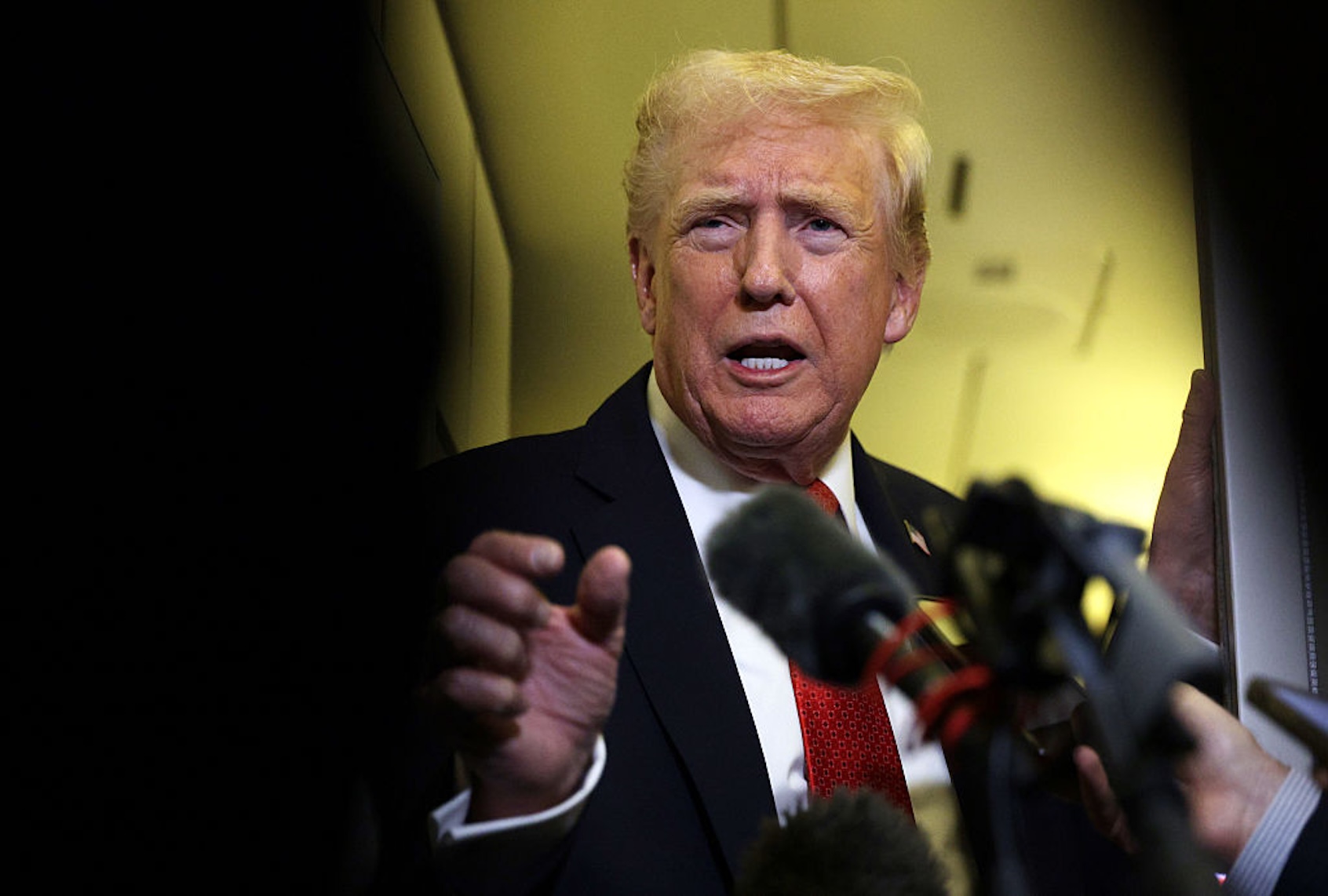World
Millions Rally in “No Kings” Protests as Trump Responds with Mockery

On March 16, 2024, the “No Kings” protests erupted across the United States, with over 2,600 demonstrations taking place. An estimated 7 million people participated, marking this as one of the largest single days of protests in American history. Instead of engaging with the widespread concerns expressed by demonstrators, President Donald Trump ridiculed them through an AI-generated video.
The video, inspired by the 1986 film “Top Gun,” features an animated “King Trump,” complete with a crown, piloting a plane that appears to dump human waste on the marchers. The clip, which included the song “Danger Zone” by Kenny Loggins, drew criticism after Loggins requested it be removed from the video. The president’s attempt to undermine the movement demonstrated his dismissive approach to public dissent.
Despite predictions of violence during the protests, which some Republican leaders labeled a “hate America” rally, the events unfolded peacefully. Governors Glenn Youngkin of Virginia and Greg Abbott of Texas mobilized their states’ National Guard in preparation for unrest, but their services were ultimately unnecessary. Trump’s allies, including House Speaker Mike Johnson, characterized the protests as “anti-American” and suggested they featured only paid participants. In reality, the demonstrations were a significant exercise of constitutional rights.
In a healthy democracy, such large-scale protests would typically signal to leaders the need to reassess their policies and actions to maintain public support. Yet, many observers believe that the political climate in the United States is increasingly resembling autocracy. Trump has been accused of disregarding public opinion in favor of an expansive view of presidential power, viewing dissent not as a valuable critique but as an affront to his authority.
Political scientist Susan Stokes, director of the Chicago Center on Democracy at the University of Chicago, noted, “In autocratic and illiberal systems, leaders consider demonstrations and street protests to be illegitimate.” She contrasted this with democratic leaders who, while not in favor of protests against their policies, typically refrain from repressing them.
Trump’s derogatory video resonated with his supporters, who praised his use of social media for political messaging. Johnson described the president as “probably the most effective person who’s ever used social media for that.” However, critics argue that the tone of the video was not only juvenile but also dangerous. Media scholar David Altheide suggested it illustrated an administration that thrives on spectacle while simultaneously mocking millions of Americans who oppose its actions.
Altheide remarked that the video embodies a form of governance that uses “mediated destruction” to reinforce authoritarian control. It suggests a troubling disregard for public dissent, labeling opposition as “symbolic waste” that can be easily dismissed. Trump’s message, as articulated during a press briefing aboard Air Force One, was clear: “I looked at the people. They are not representative of this country.”
While Trump’s popularity appears to be waning, with increasing numbers of Americans expressing concern over the future of democracy under his leadership, the political landscape remains complex. Many liberal and centrist observers hope for a resurgence of democratic values, viewing the American public as a “sleeping giant.” Yet, as Stokes pointed out, reality reflects a disconnect between government actions and civil society perceptions of democracy.
The “No Kings” protests represent a significant moment of resistance against Trumpism, but as history shows, rallies alone are insufficient for lasting change. A sustained commitment to democratic principles and active engagement in civic rights is crucial to preventing the erosion of freedoms. Sir Winston Churchill’s words resonate now more than ever: “You can always count on Americans to do the right thing — after they’ve tried everything else.”
As the nation grapples with its political identity, the future remains uncertain. The “No Kings” movement has highlighted a crucial moment in American civil discourse, emphasizing the ongoing struggle between authoritarianism and democratic resilience.
-

 Science1 month ago
Science1 month agoOhio State Study Uncovers Brain Connectivity and Function Links
-

 Politics1 month ago
Politics1 month agoHamas Chief Stresses Disarmament Tied to Occupation’s End
-

 Science1 month ago
Science1 month agoUniversity of Hawaiʻi Joins $25.6M AI Project for Disaster Monitoring
-

 Entertainment1 month ago
Entertainment1 month agoMegan Thee Stallion Exposes Alleged Online Attack by Bots
-

 Science3 weeks ago
Science3 weeks agoALMA Discovers Companion Orbiting Giant Star π 1 Gruis
-

 Science2 months ago
Science2 months agoResearchers Challenge 200-Year-Old Physics Principle with Atomic Engines
-

 Entertainment1 month ago
Entertainment1 month agoPaloma Elsesser Shines at LA Event with Iconic Slicked-Back Bun
-

 World1 month ago
World1 month agoFDA Unveils Plan to Cut Drug Prices and Boost Biosimilars
-

 Top Stories1 month ago
Top Stories1 month agoFederal Agents Detain Driver in Addison; Protests Erupt Immediately
-

 Business1 month ago
Business1 month agoMotley Fool Wealth Management Reduces Medtronic Holdings by 14.7%
-

 Entertainment1 month ago
Entertainment1 month agoBeloved Artist and Community Leader Gloria Rosencrants Passes Away
-

 Politics2 months ago
Politics2 months agoNHP Foundation Secures Land for 158 Affordable Apartments in Denver









